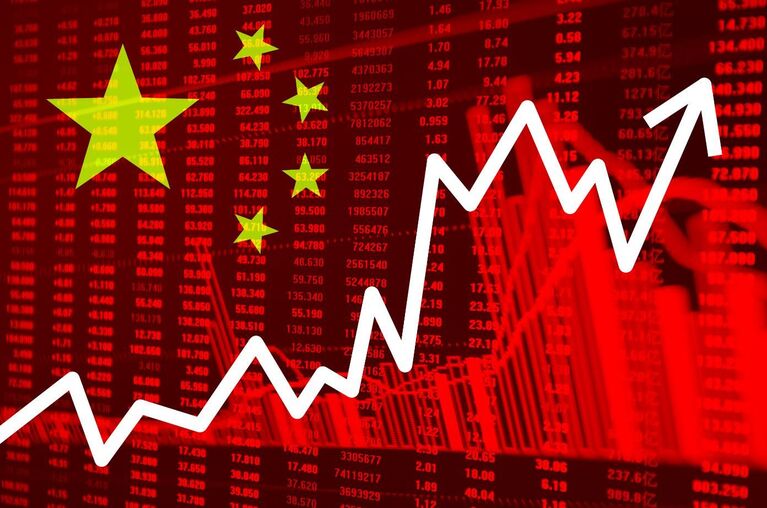
Chancellor Rishi Sunak last month announced plans for a windfall tax on the profits of oil and gas producers to fund support for people struggling with the cost of living crisis. The proposed levy raised questions about the effect on investment in the North Sea. Energy majors BP [BP] and Shell [SHEL] have reviewed the impact that operating in the region will have on their bottom lines, warning that they might have to reduce capital expenditure.
Though utilities aren’t the target of the windfall tax, the UK government hasn’t ruled out increasing taxes on them. Utilities have historically offered a steady return and have a strong track record of paying out dividends. But the rising cost of gas and electricity has thrown a spotlight on British utility companies like SSE [SSE], National Grid [NG] and Centrica [CNA].
A profits levy against utilities would be a bad idea, says David Osfield, fund manager of the EdenTree Responsible and Sustainable Global Fund. Writing for Investment Week earlier in June, Oldfield explained that viewing utilities in the same way as oil and gas companies is “an overly simplistic analysis which fails to take into account several factors including the prevalence of longer-term, volatility-lowering, power price contracts and hedging strategies”.
Oil and gas companies tend to reinvest the majority of their profits into non-renewable energy infrastructure and initiatives, he added. On the other hand, utilities are “among the greatest drivers of the UK’s transition to a more sustainable future”.
SSE pledges to invest in green energy
To stave off the threat and potential impact of a windfall tax, SSE announced at the end of May that it would invest “significantly more than it takes in profits” to boost and deliver homegrown, clean and green energy. Nevertheless, the impact of a profits levy is impossible to predict, CEO Alistair Phillips-Davies said.
This uncertainty “is likely to overshadow the benefit of inflation and commodity prices,” Citigroup analyst Jenny Ping wrote in a note to clients seen by Bloomberg in May. She lowered her rating for SSE from ‘buy’ to ‘neutral’.
The SSE share price has fallen 14.9% in the past month to close at 1,627.50p on 22 June. The stock peaked at an all-time high of 1,935.50p on 18 May.
National Grid warns of deterrent
On its fourth quarter earnings call in mid-May, National Grid CEO John Pettigrew said that the utility was on track to become “the FTSE’s biggest investors in the delivery of net zero”.
Pettigrew told The Guardian that a windfall tax on utilities would deter the investment that is needed if the country is to achieve its climate change targets.
However, a windfall tax on energy companies’ bumper profits is unlikely to significantly impact National Grid, which doesn’t benefit directly from soaring energy prices as it has minimal exposure to commodity price increases.
Nevertheless, the group plans to share £200m of excess cash from subsea cable revenue to help households struggling to pay their bills.
The National Grid share price is down 12.1% in the past month at 1,033p, as of 22 June. The stock peaked at a 52-week high of 1,271.45p on 18 May.
Renewables provide Severn Trent with natural hedge
Midlands-based Severn Trent, which supplies water to more than 8 million people, has launched a £30m fund to support over 100,000 households struggling to pay their energy bills. This comes after water regulator Ofwat called on firms to do more to tackle the rising cost of living.
Ofwat carries out a review of water prices every five years to ensure they’re affordable. This helps keep Severn Trent’s profits in check, meaning that the firm is unlikely to be affected by a possible windfall tax as the company holds no oil and gas assets.
The group has performed well under the system, argued Hargreaves Lansdown’s Matt Britzman in his analysis of Severn Trent’s full-year earnings in May. Yet, there will be headwinds ahead.
“Inflation in costs from power to chemical means costs are expected to rise,” said Britzman, although he added that it has “a natural hedge” against rising energy prices as its renewable business generates around half of its energy consumption.
The Severn Trent share price is down 10.2% in the month to 22 June at 2,738p, and down 5.1% since the start of the year. However, the company (along with other water utility stocks) may be an alternative investment for those wishing to avoid the wrath of the windfall tax on major energy players like SSE, National Grid and Centrica.
Disclaimer: CMC Markets is an execution-only service provider. The material (whether or not it states any opinions) is for general information purposes only, and does not take into account your personal circumstances or objectives. Nothing in this material is (or should be considered to be) financial, investment or other advice on which reliance should be placed. No opinion given in the material constitutes a recommendation by CMC Markets or the author that any particular investment, security, transaction or investment strategy is suitable for any specific person. The material has not been prepared in accordance with legal requirements designed to promote the independence of investment research. Although we are not specifically prevented from dealing before providing this material, we do not seek to take advantage of the material prior to its dissemination.





















